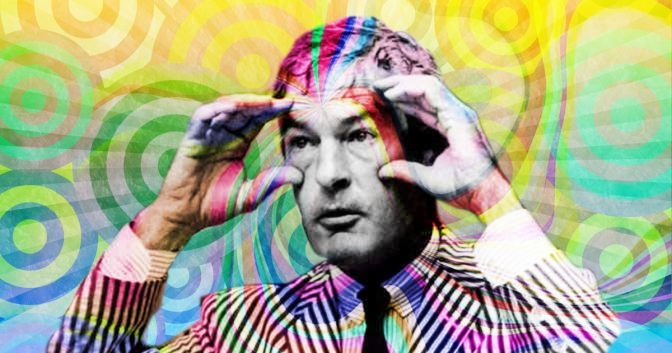Book Review: The Hunt for Timothy Leary

Ever see one of those action-adventure flicks where the writers try to stuff everything in, including the kitchen sink? You know, the big-budget buddy movie with exotic locales, international intrigue, improbable exploits, white-knuckle action sequences, witty dialogue, rapid-fire editing and lots of celebrity cameos? And then they blow your mind by insisting it’s based on a true story?

Authors Steven L. Davis and Bill Minutaglio
Bill Minutaglio and Steven L. Davis’ The Most Dangerous Man in America: Timothy Leary, Richard Nixon and the Hunt for the Fugitive King of LSD (their previous book, Dallas 1963, received a PEN Center literary award for research nonfiction in 2014) doesn’t read like a nonfiction book as much as it feels like watching the film version of a book. It’s set in the circa-1970 era of antiwar protests, riots and terrorist attacks.
American society was fracturing as the unpopular war in Vietnam fueled dissent. The Weather Underground, the Black Panther Party and other revolutionary groups viewed violence as “by any means necessary.” In the middle of this commotion was a mild-mannered former Harvard professor turned psychedelic evangelist, Dr. Timothy Leary.
A consummate showman, Leary spent years promoting the use of psychedelics, in particular LSD, and free love to the outrage of establishment America. First at an estate in Millbrook in upstate New York, then in Laguna Beach, Calif., he offered a psychedelic-driven message with catchphrases like «turn on, tune in, drop out» and «question authority.» To hippies, he was a sybarite philosopher king, a celebrity messiah of all things groovy. To President Richard Nixon and his supposed “Silent Majority,” Leary symbolized all they couldn’t stand in the cultural and political upheavals of the time.
Nixon hated hippies and the drugs they used. “We knew we couldn’t make it illegal to be either against the war or black, but by getting the public to associate the hippies with marijuana and blacks with heroin, and then criminalizing both heavily, we could disrupt those communities,” his counsel John Ehrlichman acknowledged in 1994. Law enforcement savaged antiestablishment groups and activists with harassment and bogus prosecutions, including FBI director J. Edgar Hoover’s secret COINTELPRO program of infiltration and provocation.
EXCERPT: “Catching his breath, bracing for shouts and barks and bullets, Tim skitters in circles in the dark until he finally spots his glasses near the fence. Jamming them on, he crouches and begins running serpentine style until he suddenly caroms down a rocky hill.”
Though the book’s title and Leary’s reputation hang on LSD, its plot and most of its pages are driven by weed. After his appeal of a pot bust for two roaches in 1968 got the federal Marihuana Tax Act ruled unconstitutional—it was replaced by the Controlled Substances Act of 1970—Leary was sentenced to 10 years in California prisons. The outrage of the punishment inflamed Leary’s followers, and the Weather Underground helped him escape from a minimum-security prison in 1970.
Leary eluded capture for 28 months while traveling to three continents. The backbone of the book is the high-stakes cat-and-mouse game between him and the mercurial former Black Panther leader Eldridge Cleaver, who harbored him in Algeria. Eventually, authorities seized Leary in Switzerland in 1972.
Like any crowd-pleasing stoner blockbuster, the jokes, the joints, the celebrities and insights keep coming. This thrill-ride of a book not only satisfyingly chugs across the finish line at breakneck speed, it crystalizes both the establishment and the antiestablishment moods of the era—which have similarities with today’s. Even those who lived through the ’60s and ’70s will be amazed at how dangerous America actually was back then, and how the true story of Leary’s exploits was even wilder than any Hollywood fiction writer could have ever imagined.
Related Articles
From Yippie to Yuppie: ’60s Activist Jerry Rubin
The Moody Blues’ «Legend of a Mind (Timothy Leary’s Dead)»
Movie Review: «Dying to Know: Ram Dass and Timothy Leary»
If you enjoyed this Freedom Leaf article, subscribe to the magazine today!

